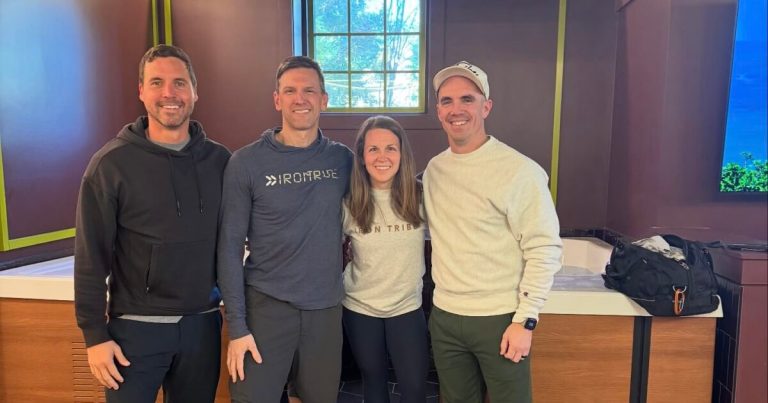Reviewed by: Patience Itson
Learn why Sickle Cell Warrior Jori Smith is advocating for Sickle Cell Awareness
Reading time: 5 minutes
Sponsored

September is National Sickle Cell Awareness Month—a time dedicated to highlighting the need for research and treatment of sickle cell disease. To learn more, we spoke with Jori Smith, an advocate for Sickle Cell Awareness and co-founder of the Sick of It Foundation.
Learn more about Sickle Cell Awareness and what you can do to help!
What is sickle cell disease?

Sickle cell disease is a common, inherited red blood disorder than affects about 100,000 people of various racial and ethnic backgrounds in the United States, with a majority being of African descent. The disease causes red blood cells to harden and form a C-shape like a sickle—hence the name. These hardened cells can build up in blood vessels and cause serious health issues for patients, including:
- Acute anemia
- Organ failure
- Respiratory conditions
- Stroke
- Tissue + organ damage
Although you can’t catch sickle cell disease, there is currently no widely-used cure for patients born with the disease.
So, how can I can help people with sickle cell disease?
Blood transfusions are one of the most critical sickle cell treatments of all.
When you donate to the Red Cross, your blood is tested for specific antigens that can be used to treat sickle cell disease. If your blood is a match, the Red Cross will let you know so you can help sickle cell patients by donating blood, plasma or platelets.
Why sickle cell awareness matters | Jori Smith

To learn more about why sickle cell awareness matters, we spoke with Jori Smith—a graduate of Spelman College, member of the Alpha Kappa Alpha Sorority, co-founder of the Sick of It Foundation and a Sickle Cell Warrior.
Jori was just two weeks old when she was diagnosed with Sickle Cell Disease. Growing up, she began experiencing pain crises at the age of seven, and was admitted into the hospital at the age of 13 for her first blood transfusion after a particularly severe pain crisis.
“My first pain crisis was very jarring for a seven year old. I had had colds and infections before, but nothing to the extent of the pain I felt then. That was the beginning of my family’s journey with Sickle Cell Disease.”
Jori Smith
Jori isn’t the only one in her family affected by Sickle Cell Disease. Her younger brother, Jarren, also carries the Sickle Cell trait—although he does not have the disease.

“I dealt with some shame and confusion as a child about my condition. My parents explained it the best way they could, but it doesn’t all make sense at such a young age. I didn’t speak up about my journey until I went to college. In college, I connected with other people who had sickle cell disease and I had an opportunity to speak publicly about my experience. The response I received inspired me to continue to raise my voice and advocate for myself and others like me.”
Jori Smith
In 2018, Jori and her brother co-founded the Sick of It Foundation, an organization that aims to educate and advocate for Sickle Cell Disease and create a community for children and families affected by the disease.
“After meeting with other Sickle Cell Warriors, my brother and I realized we were incredibly blessed to be as able-bodied as we are. We decided it was our responsibility to advocate for the Sickle Cell Warriors who couldn’t advocate for themselves. The Sick of It Foundation is growing and finding new ways help people understand how they can support those with Sickle Cell Disease, whether it’s getting them medicine, fluid or actually donating blood.”
Jori Smith
Here’s How You Can Get Involved

“Supporting someone with Sickle Cell Disease can be as simple as bringing them food, water or medicine. You can also help by sharing news and updates on the search for a cure, and by helping us bring awareness by advocating with us.”
Jori Smith
Since there is no known cure for sickle cell disease, blood transfusions are one of the most critical sickle cell treatments of all.
“Donating blood is so important because blood transfusions literally save our lives. I’m very thankful to the Red Cross and every other organization that is helping put the focus on the importance of giving blood, because it’s incredibly, incredibly needed.”
Jori Smith
The need for blood donations is constant—luckily, it’s never been easier to schedule an appointment for a blood donation. You can schedule an appointment through the American Red Cross Blood Donor app, via the online scheduler, by calling 1-800-RED CROSS or by participating in a local blood drive!
If you live near Tuscaloosa, you can participate in a Sickle Cell Awareness Blood Drive on Wednesday, September 7th.

Visit the American Red Cross website for more information and tag @americanredcross when you donate blood!
Sponsored by:




